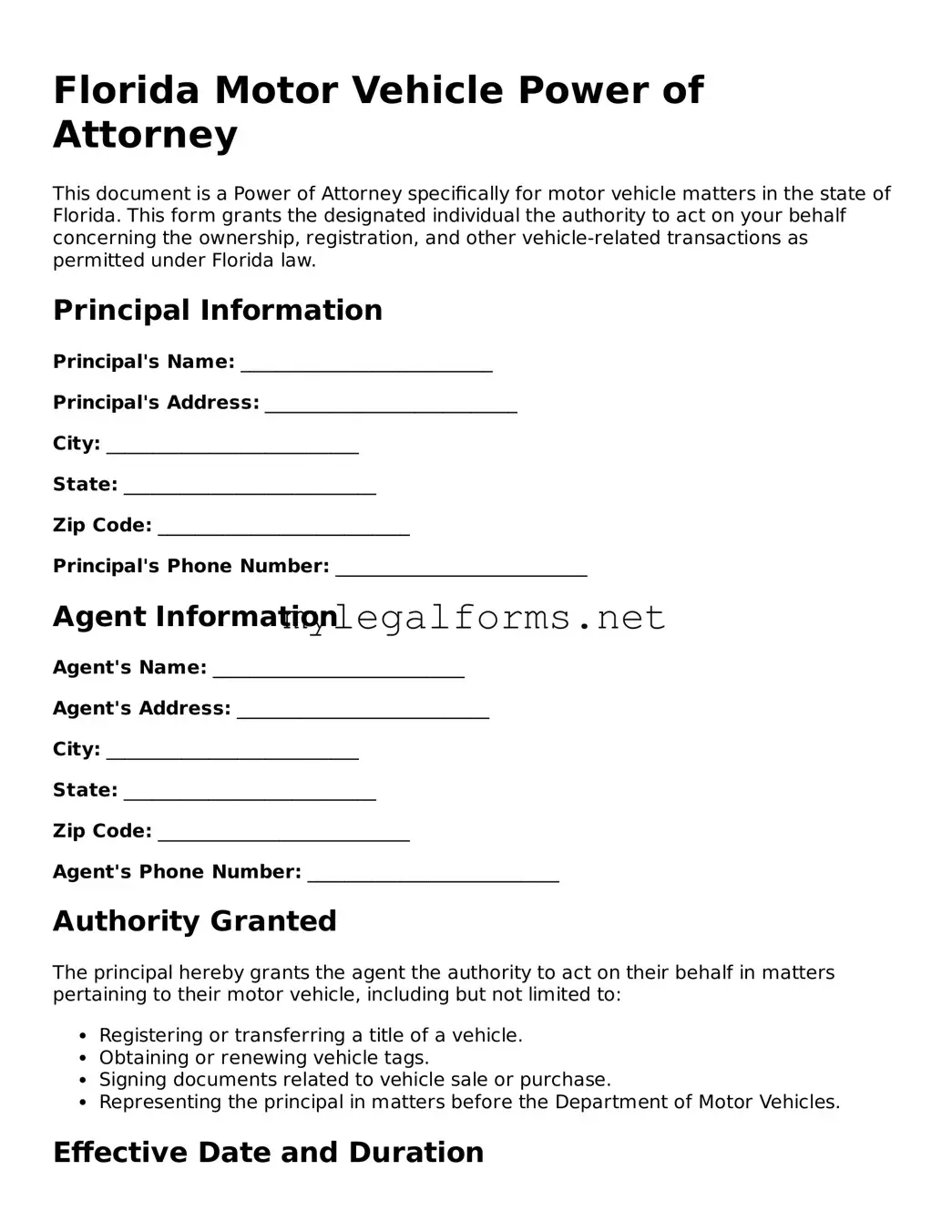Motor Vehicle Power of Attorney Document for Florida State
The Florida Motor Vehicle Power of Attorney form is a legal document that allows an individual to designate another person to handle specific tasks related to their vehicle. This can include signing documents, transferring titles, and managing registrations. Understanding how this form works can simplify vehicle transactions and ensure everything is handled smoothly.
Launch Motor Vehicle Power of Attorney Editor

Motor Vehicle Power of Attorney Document for Florida State
Launch Motor Vehicle Power of Attorney Editor

Launch Motor Vehicle Power of Attorney Editor
or
⇓ PDF Form
Complete the form at your pace — fast
Finish your Motor Vehicle Power of Attorney online and download the final version.